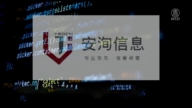【新唐人2013年08月31日讯】中共当局最近出台了一系列对媒体管控的严厉举措。其中,中宣传部下令所有喉舌媒体记者参加马克思主义课程,被视为是最新的一次行动。据报导,总人数超过30万人以上。外界普遍相信,这一举措,是当局企图进一步收紧对传媒的控制。
美国《华尔街日报》8月29号报导,中宣部在当月,要求中国所有的喉舌媒体人员参加至少两天的马克思主义课程,其中包括30多万名记者和编辑。
报导引述香港大学的一位研究员班志远(David Bandurski)的话说,这些课程可能着重关注马克思主义新闻观,指导记者要“听党的话”、“支持党的路线”,帮助引导公众舆论。相应地,媒体人员的课程重点,是提醒他们帮助维持所谓的“稳定”,以及支持中共当局。而在选择发布信息方面,要服从上级的领导。
班志远透露说,这些媒体人员被告知,这是他们的任务,不能忘了。
原《陕西电视台》编辑马晓明:“那就是要加强对记者的思想控制,使记者服服帖帖的为他们的政治宣传服务,为他们的愚民政策服务。在中国大陆,正式被批准成为记者的人,几乎全部都是官方的记者。因为中国大陆既没有独立的党派,就更谈不上独立的政治团体办的报纸。”
曾经担任中共喉舌媒体《陕西电视台》编辑的马晓明表示,自己就是因为没听中共的话,犯了所谓的“严重违反党的宣传纪律”,所以被撤销了编辑职务。
对于中宣部的命令,班志远告诉《华尔街日报》,这一举措表明当局有了新的紧迫感,所以加快对记者的管制。因为在中国目前的环境下,中共的媒体通常优先取得消息发布权,甚至获得独家消息和专访,使他们可以主宰新闻的传播。
深圳专栏政论作家朱健国观察认为,现在中共的整个趋势,是要回归到文革之前的那种状态,也就是1949年至1966年。那个时候就是坚持以马列主义为意识形态。
深圳专栏政论作家朱健国:“这种迹象表明,所谓十八届三中全会,要研究的改革,与真正的改革是无关的。所谓真正的改革是打破禁区、开放禁区,而现在是增加禁区、设立禁区。225这就表明现在有些人还对‘习新政’还抱有幻想、希望,那是不可能的。改革早已终结了,没有了,现在是回头。”
最近几个月,中共扩大对网络信息打击的范围和力度。本月,中共当局还宣布了打击“网络谣言”的计划,呼吁所有网络用户进行自我审查,中共喉舌《人民日报》不久前也附和报导了这一消息。
朱健国:“所有信息的采集和发布,全部由中南海把它控制起来,那就把老百姓的信息采集权、知情权都要收回。像最近打压网络上的那些意见领袖,网络大V,像薛蛮子事件,那都是鸡蛋里面挑骨头,来找事。”
《自由亚洲电台》报导显示,据不完全统计,最近两个月,中国各地警方对所谓的“网路谣言制造和传播者”,最少逮捕和刑拘了五百多人。
其中,知名博客作者薛蛮子最近因为涉嫌召妓而被拘,引发人们担心,认为他可能是被当局陷害,因为薛蛮子经常就社会事件发表评论。
马晓明:“它暂时可以压制一下民间信息发布、信息交流的势头,但是总的来说,它不可能压制住。就是现在在中共政权打压网络信息传播期间,民间的信息传播仍然非常频繁、非常火爆的传递中。”
今年2月,“无国界记者” 组织(Reporters Without Borders)发表的全球新闻自由排名榜上,中国在179个国家和地区中,名列第173位。报告说,中国(共)监禁社交媒体活跃用户的情况是世界上最严重的。
采访/易如 编辑/王子琦 后制/孙宁
Chinese Regime Requires Reporters to Take Marxism Lessons
Recently, a series of harsh media control measures
were issued by the Chinese Communist Party (CCP).
One is that all media reporters have to attend
Marxism classes.
Observers believe this is an action to further
control the media.
On August 29, the Wall Street Journal reported that
the Central Propaganda Department requires all media
personnel, including over 300,000 reporters and editors,
to attend at least two days of Marxism classes.
David Bandurski, a researcher at the University
of Hong Kong, said that these classes may focus on Marxist’s
news concepts, guiding reporters to listen to the party,
support the party line, and to help guide public opinion.
Accordingly, lessons for reporters may focus on maintenance
of stability, supporting the central government,
and publicizing information according to the superior
leadership.
These media personnel were told that it was their task
and should not be forgotten.
Ma Xiaoming, former editor of Shaanxi TV:
“By strengthening control of the reporters’ minds,
reporters will provide services of obscurantism.
In China, there is no independent party, let alone independent
newspaper, and all reporters are officially appointed.”
Ma Xiaoming was removed from his editor position
because he failed to follow the CCP,
committing serious violations
of propaganda discipline.
David Bandurski told the Wall Street Journal
the CCP’s move showed that
authorities had a new sense of urgency and
want to hasten control of reporters.
Currently, media outlets have priority in obtaining the
right to publish or getting exclusive news and interviews,
so they can decide how to spread the news.
Zhu Jianguo, columnist from Shenzhen, thinks this shows
the whole trend of the CCP is returning to the state before
the Cultural Revolution, from 1949 to 1966, which was
to adhere to Marxism-Leninism as the ideology.
Zhu Jianguo: “This scenario indicates that what was being
discussed during the 18th Congress had nothing to do with real reform.
The real reform is breaking through restricted areas, but they
are increasing the restricted and prohibited zones instead.
Many people still cherish the hope of Xi’s new deal.
That is an illusion; the reform is over and
now it is going backwards.”
In recent months, the CCP expanded its attack
on information, both on the scope and intensity.
This month, authorities also announced a scheme to attack
network rumors, calling on all network users to self-inspect,
and the CCP mouthpiece People’s Daily also recently
reported the announcement.
Zhu Jianguo: “Zhongnanhai controls all of
the collection and dissemination of information.
In other words, they take away the people’s right
to collect and to know about information.
For example, the recent suppression of leaders of network
information and the Xue Manzi incident—the arrest
of the VIP of microblogs—is like finding bones in eggs.”
Radio Free Asia reported that,
according to incomplete statistics,
more than 500 people were arrested for creating and
spreading rumors on the Internet in the last two months.
Among them, the well-known blog writer Xue Manzi,
was arrested for prostitution.
People are afraid that Xue was framed by authorities
because he likes to comment frequently on social events.
Ma Xiaoming: “You can temporarily suppress the momentum
of information dissemination and information exchange.
However, in general it is impossible to suppress information.
Currently, dissemination of information among masses
is still very frequent and fast.”
In February 2013, the Reporters Without Borders
organization revealed its freedom of information list,
in which China ranks 173 out of 179 countries
and territories.
It also said that China is the worst country in the world
in controlling active users of social media.




























